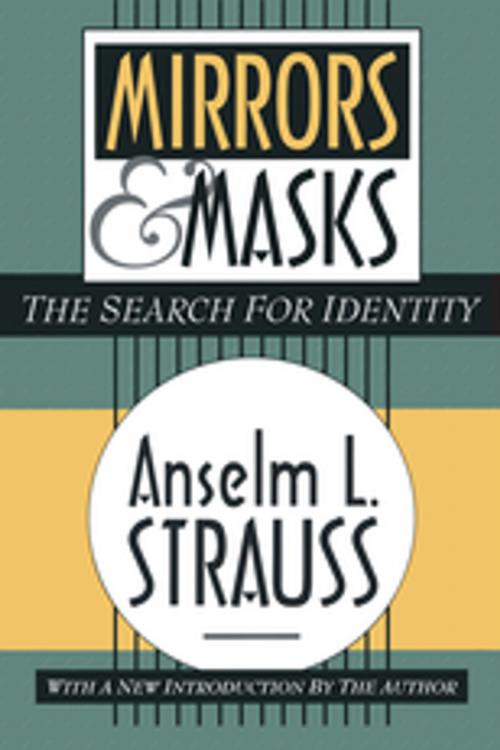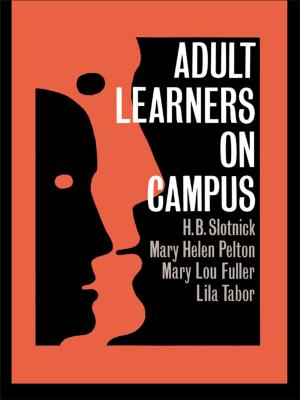| Author: | Anselm L. Strauss | ISBN: | 9781351505147 |
| Publisher: | Taylor and Francis | Publication: | July 28, 2017 |
| Imprint: | Routledge | Language: | English |
| Author: | Anselm L. Strauss |
| ISBN: | 9781351505147 |
| Publisher: | Taylor and Francis |
| Publication: | July 28, 2017 |
| Imprint: | Routledge |
| Language: | English |
Identity as a concept is as elusive as everyone's sense of his own personal identity. It is connected with appraisals made by oneself and by others. Each person sees himself mirrored in the judgments of others. The masks he presents to the world are fashioned upon his anticipations of judgments. In Mirrors and Masks, Anselm Strauss uses the notion of identity to organize materials and thoughts about certain aspects of problems traditionally intriguing to social psychologists.The problems Strauss considers to be intriguing traditionally are those encountered when studying group membership, motivation, personality development, and social interaction. The topics covered include: the basic importance of language for human action and identity; the perpetual indeterminacy of identities in constantly changing social contexts; the symbolic and developmental character of human interaction; the theme of identity as it affects adult behaviqr; relations between generations and their role in personality development; and the symbolic character of membership in groups.By focusing on symbolic behavior with an emphasis on social organization, Strauss presents a fruitful, systematic perspective from which to view traditional problems of social psychology. He opens up new areas of thought and associates matters that are not ordinarily considered to be related. Strauss believes that psychiatrists* and psychologists underestimate immensely the influence of social organization upon individual behavior and individual structure, and that sociologists, whose major concern is with social organization, should employ some kind of social psychology in their research. Mirrors and Masks shows that the fusion of theoretical approaches benefits the analyses of many scholars. This fascinating work should be read by sociologists, anthropologists, psychologists, and psychiatrists.
Identity as a concept is as elusive as everyone's sense of his own personal identity. It is connected with appraisals made by oneself and by others. Each person sees himself mirrored in the judgments of others. The masks he presents to the world are fashioned upon his anticipations of judgments. In Mirrors and Masks, Anselm Strauss uses the notion of identity to organize materials and thoughts about certain aspects of problems traditionally intriguing to social psychologists.The problems Strauss considers to be intriguing traditionally are those encountered when studying group membership, motivation, personality development, and social interaction. The topics covered include: the basic importance of language for human action and identity; the perpetual indeterminacy of identities in constantly changing social contexts; the symbolic and developmental character of human interaction; the theme of identity as it affects adult behaviqr; relations between generations and their role in personality development; and the symbolic character of membership in groups.By focusing on symbolic behavior with an emphasis on social organization, Strauss presents a fruitful, systematic perspective from which to view traditional problems of social psychology. He opens up new areas of thought and associates matters that are not ordinarily considered to be related. Strauss believes that psychiatrists* and psychologists underestimate immensely the influence of social organization upon individual behavior and individual structure, and that sociologists, whose major concern is with social organization, should employ some kind of social psychology in their research. Mirrors and Masks shows that the fusion of theoretical approaches benefits the analyses of many scholars. This fascinating work should be read by sociologists, anthropologists, psychologists, and psychiatrists.















